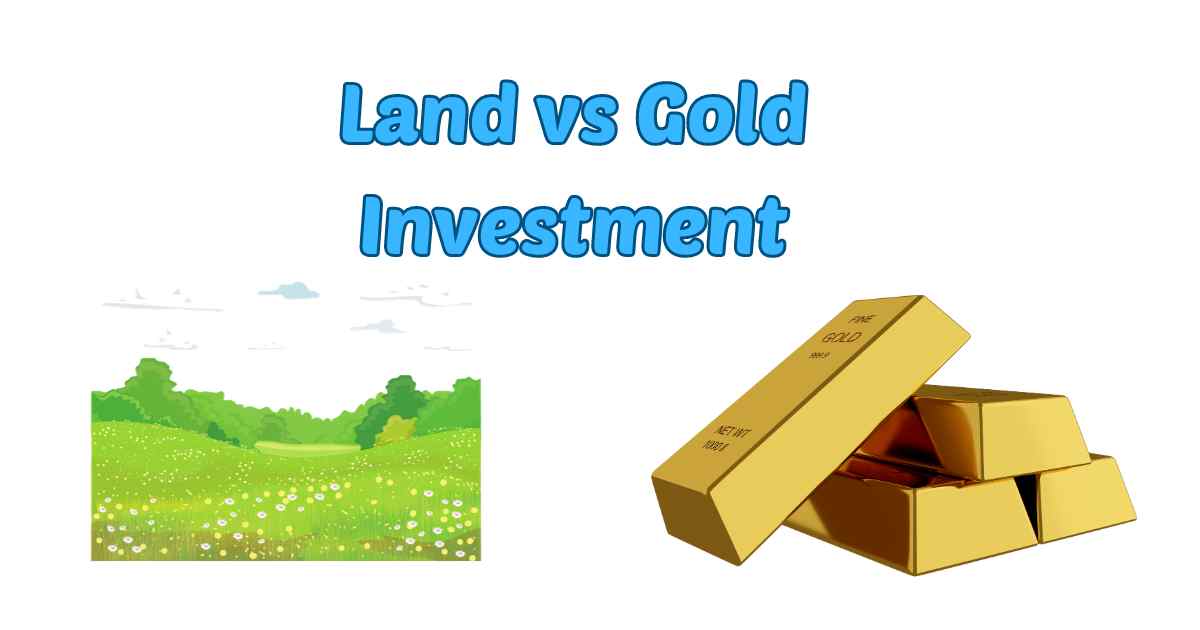Introduction
Investing is a crucial aspect of wealth creation, and choosing the right asset class can significantly impact your financial future. Two popular investment options that have stood the test of time are land and gold. In this article, we will explore the pros and cons of investing in land and gold, the mindset required for each, and why they should be considered for wealth creation. Additionally, we will discuss the future outlook for both assets as investment opportunities.
Investing in Land
Land has long been considered a tangible and valuable asset. Here are some key points to consider when investing in land:
1. Stability and Tangibility: Land is a physical asset that offers stability and security. Unlike other investments that can be prone to market volatility, land tends to hold its value over time.
2. Potential for Growth: Land has the potential for appreciation in value, especially if it is located in a desirable area. As population and urbanization continue to increase, the demand for land may also rise, leading to potential capital gains.
3. Income Generation: Investing in land can also provide income opportunities through various means, such as leasing the land for agricultural purposes or developing it for commercial or residential use.
4. Long-Term Investment: Land is typically a long-term investment that requires patience and a strategic approach. It may take time to see significant returns, but the potential rewards can be substantial.
To invest in land successfully, a mindset of patience, research, and a long-term perspective is essential. Understanding the local real estate market, zoning regulations, and potential future developments in the area can help you make informed decisions.
Investing in Gold
Gold has been regarded as a store of value for centuries. Here are some key points to consider when investing in gold:
1. Safe Haven Asset: Gold is often seen as a safe haven during times of economic uncertainty. It has historically held its value and acted as a hedge against inflation and currency fluctuations.
2. Liquidity: Gold is highly liquid, meaning it can be easily bought and sold in various forms such as bars, coins, or exchange-traded funds (ETFs). This liquidity makes it a convenient investment option.
3. Diversification: Gold can be an effective tool for diversifying an investment portfolio. It has a low correlation with other asset classes, such as stocks and bonds, which can help reduce overall portfolio risk.
4. Short-Term Investment: Gold can be suitable for short-term investments, especially during volatile market conditions. It can provide a quick and relatively stable return on investment.
Investing in gold requires a mindset of risk management, staying updated on global economic trends, and understanding the factors that influence gold prices. It is important to note that gold prices can be influenced by factors such as supply and demand dynamics, geopolitical events, and central bank policies.
Why Consider Land or Gold for Wealth Creation?
Both land and gold can play a significant role in wealth creation. Here are some reasons why you should consider these assets:
1. Diversification: Investing in different asset classes helps spread risk and can enhance overall portfolio performance. By including land or gold in your investment mix, you can diversify your holdings and potentially mitigate losses during market downturns.
2. Preservation of Wealth: Land and gold have historically been regarded as hedges against inflation and economic uncertainties. They have the potential to preserve wealth over the long term, providing a sense of security during turbulent times.
3. Tangible Assets: Land and gold are tangible assets that offer a sense of ownership and control. Unlike paper assets, they cannot be easily manipulated or devalued by external factors.
4. Potential for Appreciation: Both land and gold have the potential for appreciation in value over time. While the rates of appreciation may vary, investing in these assets can provide long-term capital gains.
The Future of Land and Gold as Investment Assets
The future outlook for land and gold as investment assets remains positive. Here are some factors to consider:
1. Land: As the global population continues to grow, the demand for land is expected to increase. Investing in land in areas with potential for development or in regions experiencing rapid urbanization may yield significant returns in the long run.
2. Gold: The demand for gold is influenced by various factors, including economic conditions, geopolitical tensions, and central bank policies. As long as these factors continue to impact global markets, gold is likely to remain a sought-after asset for wealth preservation and diversification.
FAQs
Q: Is land a risky investment?
A: Like any investment, land carries its own set of risks. It is crucial to conduct thorough research, assess market conditions, and consider factors such as location, zoning regulations, and future development plans before investing.
Q: Can I invest in gold through an IRA or 401(k)?
A: Yes, it is possible to invest in gold through certain retirement accounts, such as a self-directed IRA or a solo 401(k). However, specific rules and regulations apply, so it is advisable to consult with a financial advisor or tax professional.
Q: Are there any tax implications when investing in land or gold?
A: Yes, investing in land or gold can have tax implications. Capital gains tax may apply when selling land or gold at a profit. It is recommended to consult with a tax professional to understand the specific tax implications based on your jurisdiction.
Conclusion
Investing in land or gold can be a viable strategy for wealth creation and portfolio diversification. Both assets offer unique advantages and require specific mindsets to navigate successfully. Land provides stability, potential for growth, and income generation, while gold serves as a safe haven asset and a hedge against inflation. By carefully considering your investment goals, risk tolerance, and market conditions, you can make informed decisions to maximize the potential of land and gold as investment assets. Remember to conduct thorough research and seek professional advice when needed to ensure a well-rounded investment strategy.










